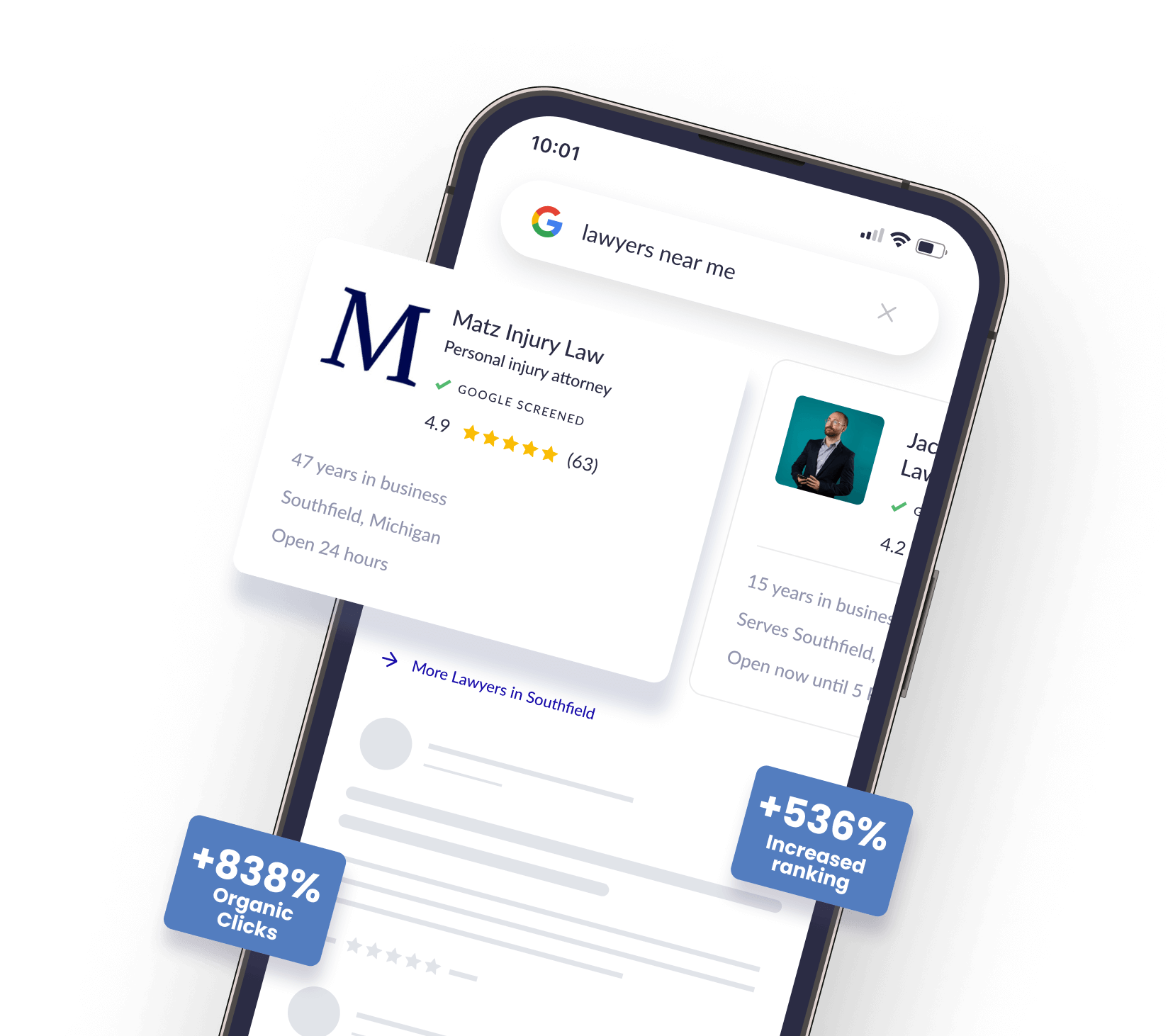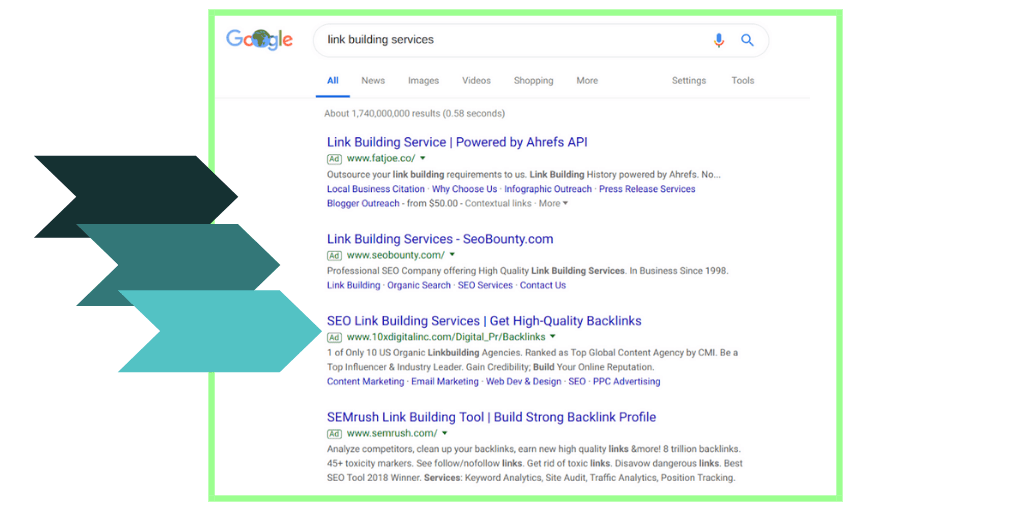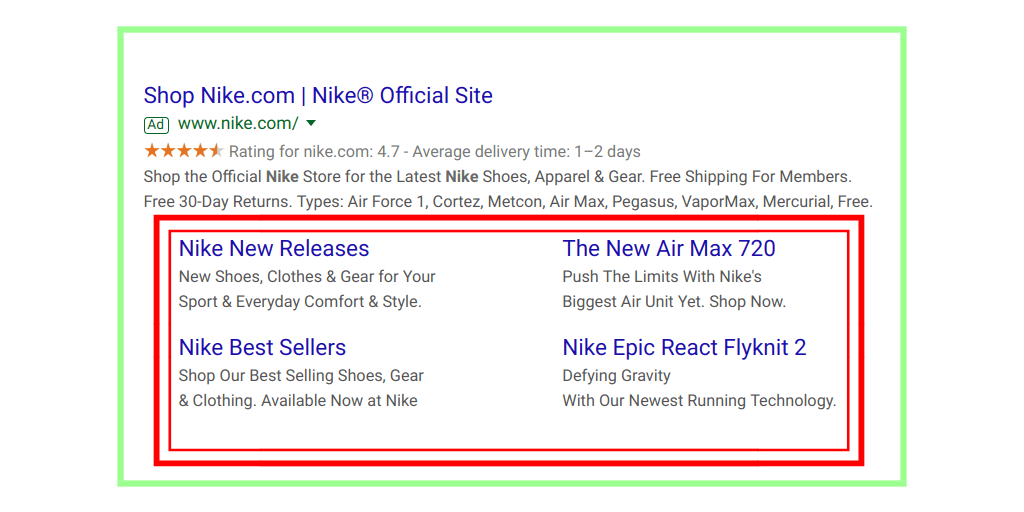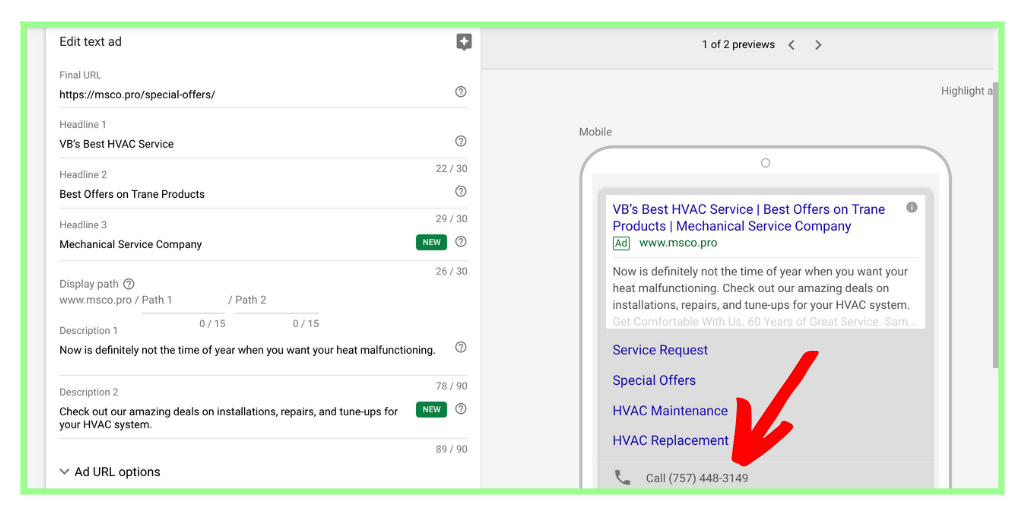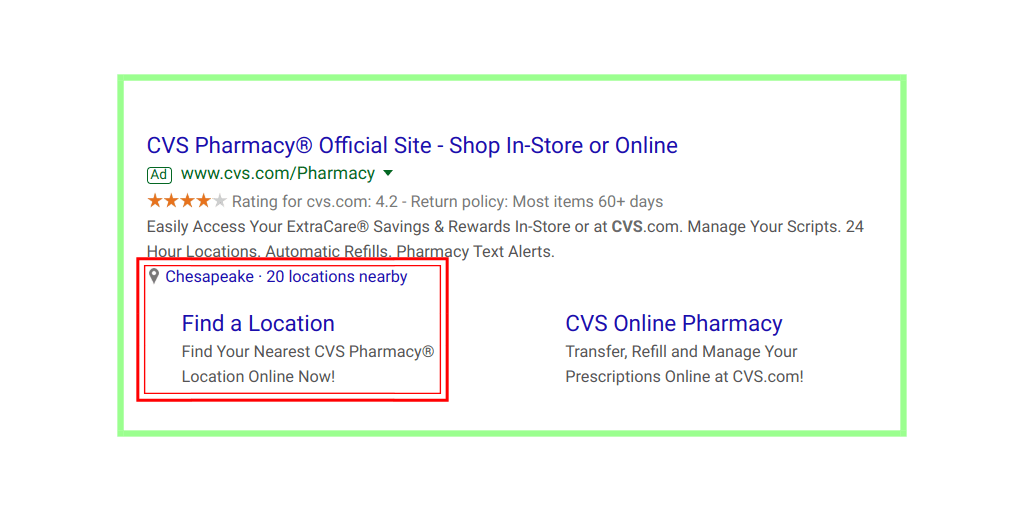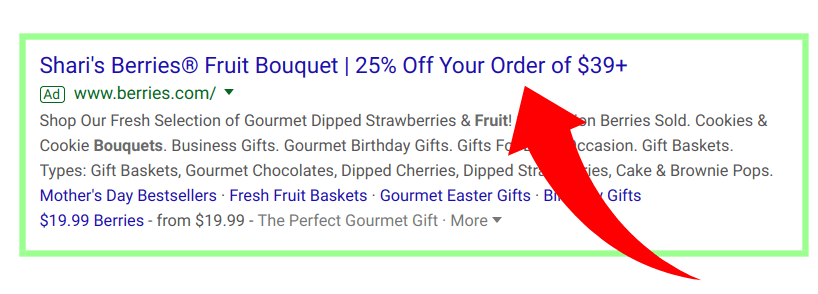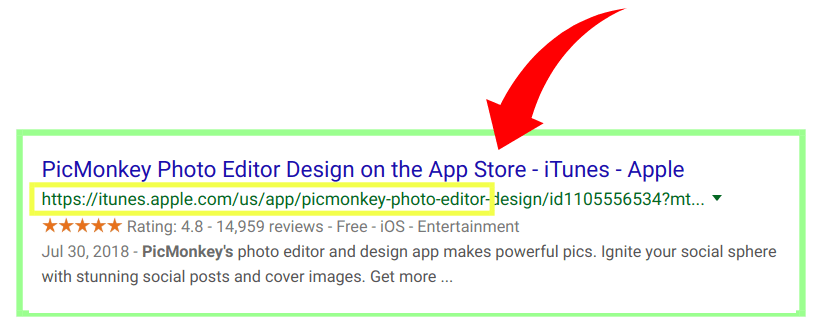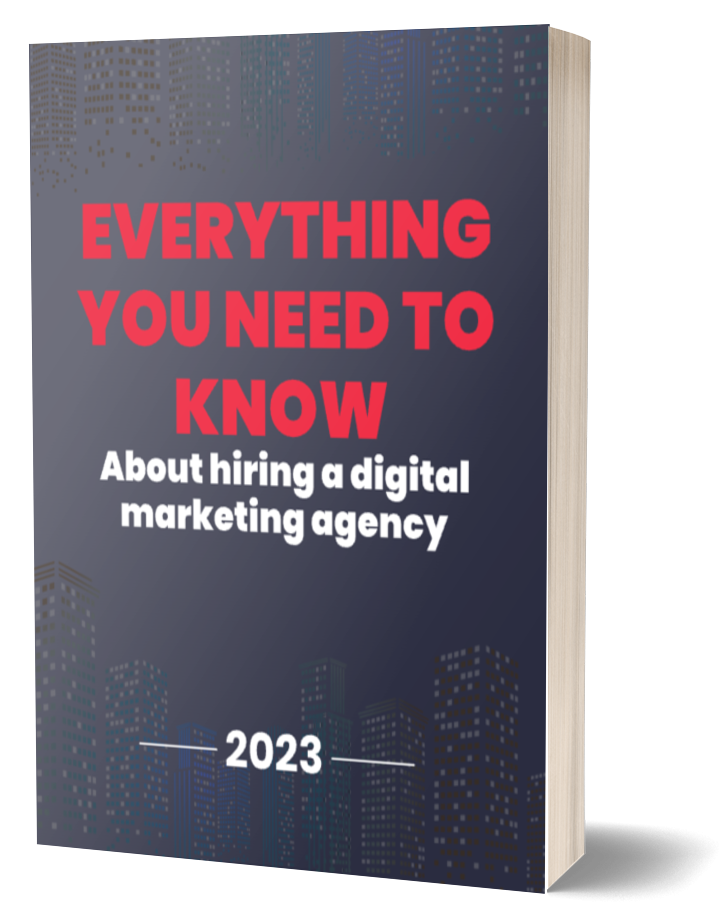
How many different online advertising platforms have you tried? If you’re considering spending money on online ads, then you want to maximize your ROI with a platform that has a proven track record of success. Google Ads has been around since October 2000 and with billions of daily users and a large return on investment, it’s one of the best online advertising platforms out there. We’ve been using it for years so we figured it was about time to express why we love it so much and how to go about creating effective ads.
Why Choose Google Ads?
Google is by far the most used search engine. Just take a look at how Google compares to other search engines:
I’d say those are pretty definitive in Google’s favor. Google receives on average 3.5 billion search queries every day. But when you advertise with Google, you’re ads aren’t just showing up on the search engine. Ads from the platform span several channels that include Google, YouTube, Blogger, and other websites that are part of the Google Display Network.
According to Google, advertisers make $8 for every $1 they spend on Google Ads, so it’s definitely a platform that’s well worth your time. Plus, Google’s online advertising platform has been around for nearly two decades, so it’s a very well-established and advertiser-friendly option for your paid advertising.
Getting Your Google Ads Set Up
Today we’re going to focus primarily on Google search ads because Google accounts for 80% of searches performed online. But you should know that there are three different types of ads – search, display, and video – and each has its own purpose and benefits.
Ad Types
Google gives you the option to select one of three campaign types: search, display, or video. We’re going to dive a little deeper into each one to determine the optimal uses for each and why one may be better for your ad campaign than another.
Search Ads
Search ads are pretty simple: they are text ads that are displayed on the Google search results page. As an example, I typed “link building services” into the search bar and what returns are several sponsored ads before you get to the organic search results:
Search ads are prime real estate because your ads are being displayed where most searchers are looking for information first – right on Google. Plus, your ads look just like the rest of the search results – minus the fact that it says “ad” – so people are accustomed to seeing and clicking on results that are in that format.
Display Ads
Display ads are placed on sites that have opted into displaying Google Ads and are therefore part of the Google Display Network. The website owner is paid per click or impression on the ads and the advertiser gets their content in front of an audience that aligns with their target market.
When incorporating display ads into your strategy you may want to check out the audience tab where you can test out a Custom Intent Audience.
Video Ads
Although display ads can sometimes appear in video form, video ads are a separate entity; these are the ads that you see before, during, and after YouTube videos. YouTube is a search engine just like Google so the right keywords will place your ad in front of their video, interrupting their results just enough to grab their attention.
Ad Extensions
Ad Extensions are essential for your Google Ads because they give users additional information as they interact with your ad. Plus, they’re free!
There are five categories that ad extensions fall into:
Sitelink Extensions
These provide additional links to your site and offer more enticing reasons for the users to click.
Call Extensions
With this option, you can incorporate your phone number into your ad so that users have an additional method they can use to reach out to your company.
Location Extensions
Location extensions offer searchers the ability to easily find your store or a location that’s near them. This is great and recommended for businesses with a storefront and ties in with the search query “…near me.”
Offer Extensions
If you are currently running a promotion, use offer extensions to entice users to click your ad instead of your competitors who aren’t offering a discount.
App Extensions
App extensions provide a link for users to download the app onto their mobile devices. This is a great option because when within your app, they’re not clicking around to other sources or performing new searches.
How Google Ads work
Google operates with keywords. Let’s say you type “Google ads” into the search engine. Here’s what comes up:
Google offers a combination of organic search results and ads in response to pretty much anything you search for on the platform. As you can see above the organic search results, there are ads that use the same keyword phrase as I typed into the search bar. When you advertise with Google, your ads will show up for the keywords that you picked.
Google counts the number of clicks you get on your ads and charges you for each click. They will also give you a count of the number of impressions, which tells you how often your ad has been shown when users searched for that keyword. If you divide the number of clicks by impressions, you get the click-through-rate which is the percentage of users that come to your landing page because they clicked on your ad. This is an important metric because it tells you which of your ads are working and which aren’t.
Google Ads works similarly to an auction. You set a budget, you bid, then you cross your fingers and hope for the best. The interesting (or maybe complicated?) thing that sets Google Ads apart from a standard auction is that it’s not always the highest bidder that wins. I mean, of course, Google wants to maximize revenue so they’ll show the ad by the company who bids the highest amount for the keyword. But only if the bidders have the same quality score. Google cares too much about its user experience to show an ad with a low quality score; they want their users coming back again and again, which is precisely why they’d prefer to show a more relevant ad that came with a lower bid than a low-quality ad with the highest bid.
Now, you have two options when it comes to bidding on your keywords: automated and manual. Automated gives Google the reins and allows the platform to adjust your bid based on those of your competitors. You can still set a maximum bid and Google will work within that range to give you the best chance at winning. Manual puts the control fully in your hands so you set the bid amounts for your ad groups and keywords, which gives you the chance to reduce spending on low-performing ads.
Why Your Google Ads Might Not Be Working
No matter how good the deal ends up being, it doesn’t mean much if you’re not getting conversions. A conversion is a new lead, sale, or more generally means that the customer took the action that you offered. If you’re not getting conversions, then your ads are underperforming and you need to assess how you can get better spend out of your ads. Here are some of the most common reasons your ads aren’t working:
Reason #1: Your keywords are too broad
You should constantly be testing and tweaking your keywords as part of your Google Ads strategy. If your keywords are too broad, Google will be placing your ad in front of people to whom it will not be applicable, meaning fewer clicks and a higher ad spend. You’ll want to review which keywords are generating clicks and adjust your ads to match your target audience effectively. It takes a few tries to get the best mix, it most likely won’t happen on your first try but if you continue to add, remove, and tweak keywords, you’ll eventually stumble across the perfect combination. It’s all about the trial and error.
Reason #2: You have a low quality score
Your Quality Score (QS) is the way Google decides how to rank your ad; it’s based on your click-through rate, the relevance of your keywords, the quality of your landing page, and your past performance. The higher your rank, the better your placement. A lower quality score means you’ll have fewer people seeing your ads and therefore fewer chances to convert.
Reason #3: Your ads are irrelevant
Google is extremely user experience focused so they will never place an ad that is unrelated to the search keyword. If your ad doesn’t match the searcher’s intent, you won’t get enough clicks or conversions to justify how much you’re spending on your ads. Your headline and ad copy should match the keywords that you’re bidding on and whatever solution your ad is marketing needs to solve the issue that the searcher is experiencing. Again, this may not be something that you achieve the first time; it could take a few tweaks to get it just right.
Reason #4: You’re driving them to a poorly designed landing page
As we stated earlier, the quality of your landing page is one of the ways that Google ranks your ad. If you’re landing page is not offering a solution that the searcher is seeking, you’ll have a high bounce rate. A high bounce rate indicates that you are not providing your user (and potential customer, remember that) with a seamless transition from the ad to the conversion. Make sure that your landing page is optimized for conversions, uses the same keywords as your ad, and provides the answers that the user is looking for.
Read More: How To Advertise on Facebook
Additional Methods to Optimize Your Google Ads
Use your negative keywords list
Google provides a list of keywords that you would not rank for so use this to your advantage. This will save you from wasting your ad spend on keywords that are completely irrelevant to your online ads.
Link Google Analytics
Google Analytics is something you can connect to your website to track traffic, conversions, goals, and other unique metrics. You should also like your Google Ads account to your analytics so that you can track the different campaigns all in one place.
“Daypart” your ads
Google has a feature that allows you to make your ads active only during the hours of the day when you are open and available to take calls from prospects and customers.
Monitor which device is producing the most results
The amount of data that Google tracks and provides to you as a resource is pretty astounding and yet another reason we favor Google Ads as one of several online advertising platforms that we employ. Google tracks what type of device is producing the most click and having the most success so that you know to focus on mobile usability if you have mostly mobile users, for example.
Utilize UTM codes
UTM stands for Urchin Tracking Module and essentially they are codes that you insert into your URL that track any activity that’s associated with that specific link. They provide you with information on which offer or ad led to a conversion so you can track what aspects of your campaign are the most effective. You should add your UTM codes at the campaign level so that you’re not having to add each URL manually.
Not ready to take on all of this yourself? Let’s talk! Array Digital has been a Google Partner for the last year which comes with many benefits including exclusive training, immediate technical support, and customized growth strategies.
Benefits of Working with a Google Partner
Google awards Partner status to companies that feature teams of Google-certified advertisers, manage a substantial amount of ad spend for their clients, and demonstrate a track record of successful return on investment. It’s like getting a pat on the back from the biggest name in advertising.
But there’s more to it than that. Being a Google Partner comes with benefits to our clients as well! Here are a couple of the key upgrades our clients get because they are working with a Google partner.
Exclusive Education and Training
Google Partners are provided with numerous exclusive opportunities for ongoing education, including product trainings, certifications, and sales trainings. The more we improve with specialized education, the more we fine-tune our expertise to better serve our clients. Our Google certified employees are well versed in every one of the Google Ads features, and we are able to maximize their potential for each client.
Immediate Technical Support with Real People
Google likes to reward the people who are getting the best return on investment for the clients, and through Google Partners, we get access to personal account managers. What that means: we don’t have to sit through long phone lines and prolonged email exchanges when working to improve your account or troubleshoot an issue.
This provides immediate access to real people who spend all day every day learning the technicalities, helping us to keep our learning up to date. They are incredible pools of exclusive knowledge and assistance backing us to ensure that we can provide optimal performance for our clients.
Customized Growth Strategies
Every business is unique with its own vital goals, and a key part of your growth plan is tracking your progress to see what works and what doesn’t. When it comes to Google, your digital marketing team needs to be able to set up precise conversion tracking to optimize your approach.
When you work with a Google Partner, you combine the proven effectiveness of the Google Partner with the extra muscle of Google’s analytics advisors that help make sure your conversion tracking is both accurate and streamlined. This way, you can get a clearer view of how effective your strategy is and what tactics you can capitalize on.
For more information or help with creating an effective ad strategy, call 757-333-3021 or use our contact page today.

Everything you need to know about hiring a digital marketing agency:
- The four pillars of digital marketing
- Digital marketing options and costs
- The pitfalls to avoid
- What to expect when working with an agency
- The qualities to look for in a digital marketing agency
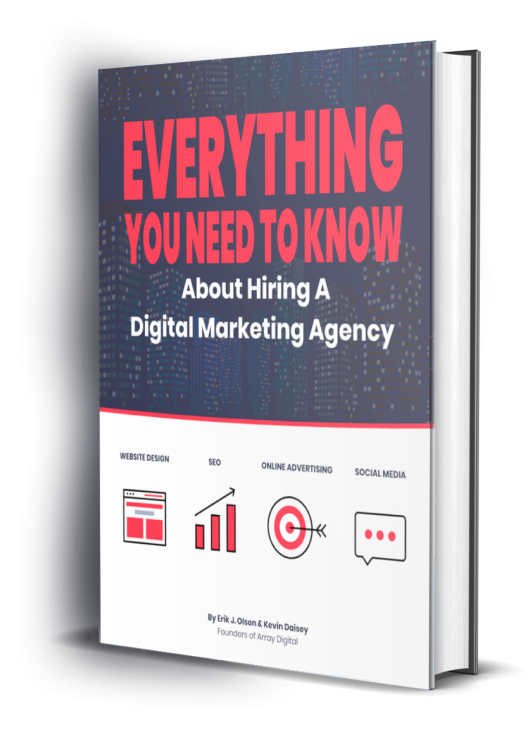
Related Advertising Articles
Extraordinary Results
-
“Erik and the Array Digital team are top notch in the digital marketing spaces, particularly for SEO. Their understanding of Google, the algorithms, and the work involved to get websites ranking on the first page is unparalleled. Thank you Erik!!”
Andrew ZihmerZihmer Law Firm -
“I had a chance to consult with Kevin Daisey for my law firm’s marketing needs. He is knowledgeable, kind, and helpful. He provided me with a great marketing analysis. He also invited me to their podcast as a guest speaker. Thank you Array Digital!”
Merve KatiZMK Law -
“The legal profession needs more architects and designers…folks who are thinking about the future of the profession and who are assembling a tribe of like minded lawyer leaders. Erik and his team are certainly ‘that’.”
Ben GlassBen Glass Law & Great Legal Marketing


